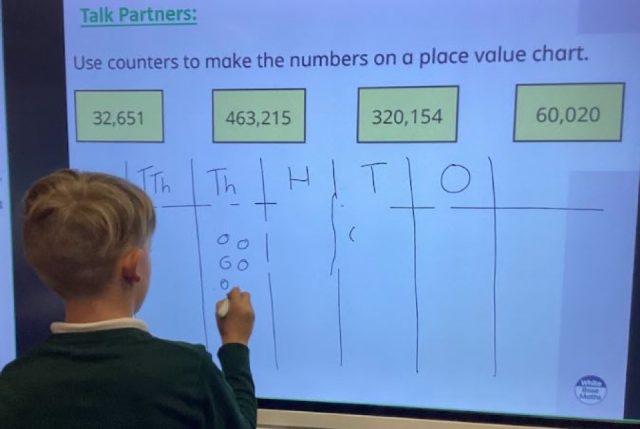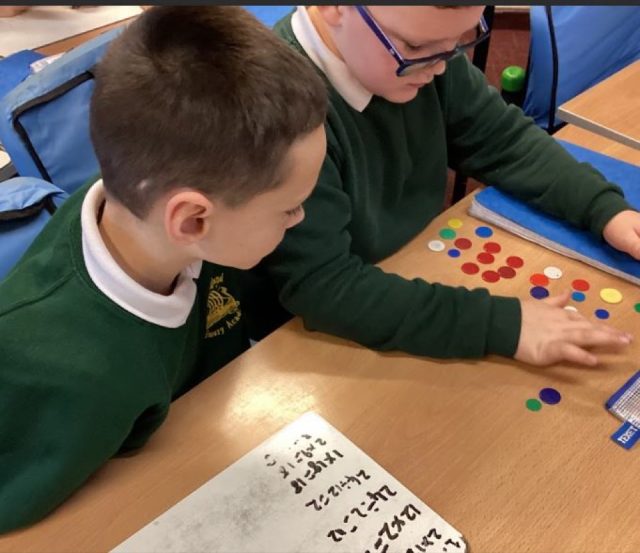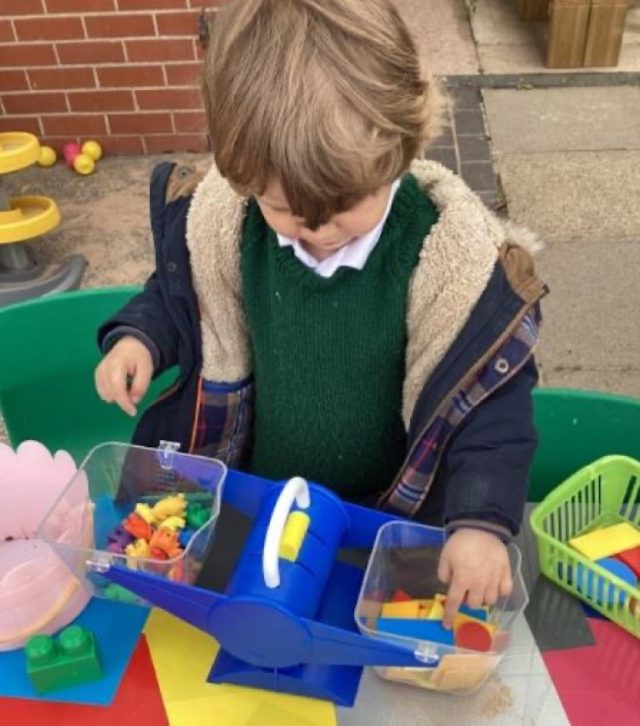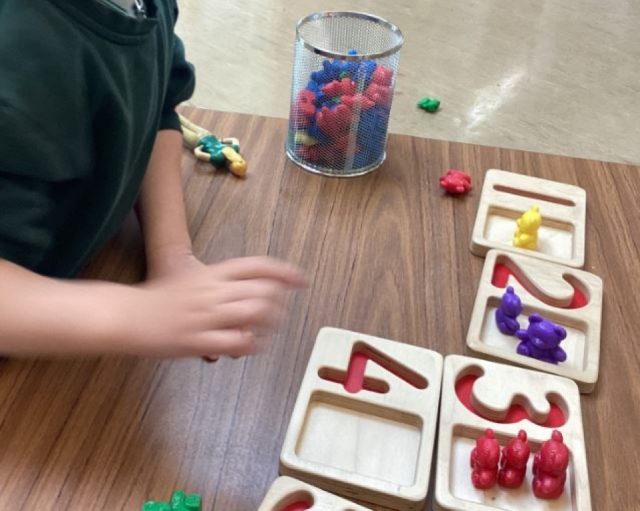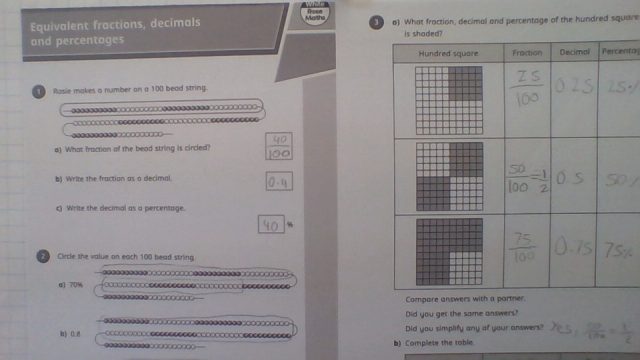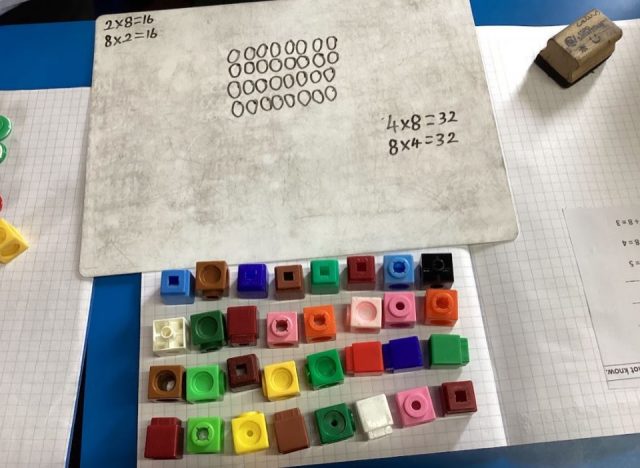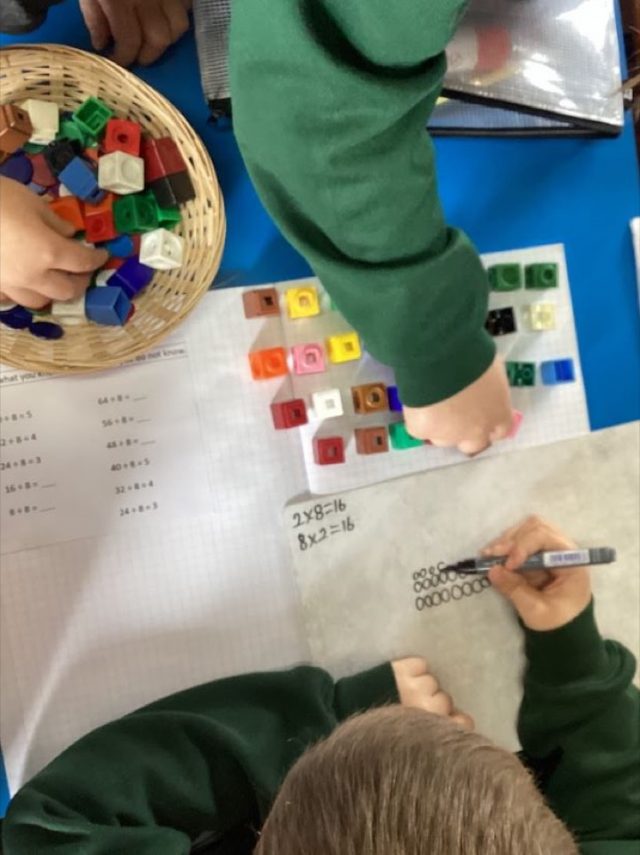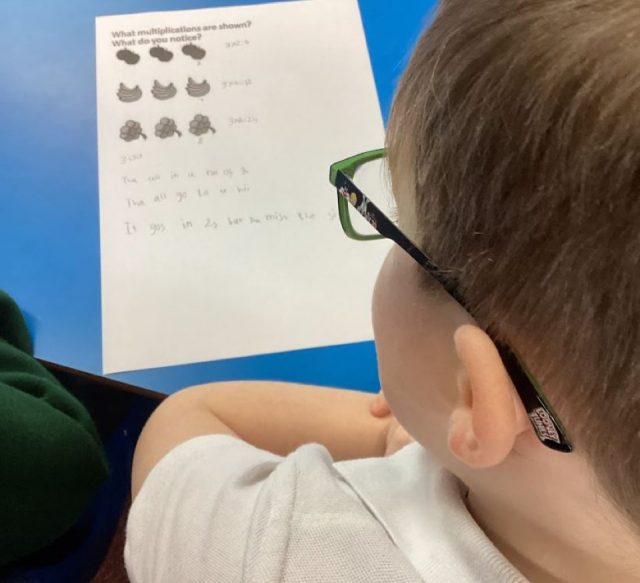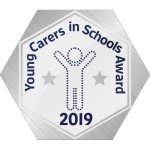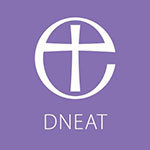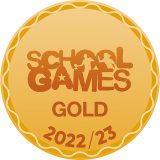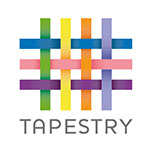“The only way to learn mathematics is to do mathematics.” – Paul Halmos
“Arithmetic is being able to count up to twenty without taking off your shoes.” Mickey Mouse
Our Vision
At Kessingland Church of England Primary Academy we believe that the purpose of education is to further social justice, to deliver a curriculum that includes powerful knowledge which takes pupils beyond their everyday experience. Our vision is deeply Christian, with the golden thread of Jesus’ promise of ‘life in all its fullness’. We believe that everyone is a child of God and should be supported to flourish and reach their full potential. We are committed to developing the whole child and have high aspirations for everyone to be the best they can be.
Maths
Aspire: We aim to provide experiences which show children the wide range of possibilities available for their future. We want them to be challenged to imagine possibilities beyond their own experience.
Believe: We promote ambition, high aspirations and foster pupils’ capacity to see the possibilities within the world today. Championing a Growth Mindset, pupils believe in the power of ‘yet’.
Challenge: We strive for children to learn skills alongside knowledge, ensuring that all pupils have a secure platform to reach the next step in their learning journey and their full potential – ‘With God, all things are possible’ (Matthew 19:26).
Intent
Maths is statutory entitlement for our pupils and accessible to all.
At Kessingland Church of England Primary Academy, our belief is that every child can master an understanding and love of maths with the right kind of teaching and support. To help us achieve this, mathematics is taught through a Teaching for Mastery approach.
Concepts are taught in small steps that build upon each other so that all children can master concepts and move on to the next part of the curriculum together. Our inclusive approach to teaching mathematics ensures that all children achieve and in turn, develops an ethos within school that shows children that they are all able mathematicians. We strive for children to develop a positive and enthusiastic approach to maths.
We teach maths in a way that is meaningful to children in order for them to understand the relevance and importance of mathematics in everyday life. We make many links to other subjects as well as real-world scenarios in order to broaden children’s knowledge and ability to use mathematics in the wider world. By the end of their journey at primary school, we aim for pupils to have a deep, lasting understanding of maths. Students will become fluent in the fundamentals of mathematics and apply their knowledge quickly and accurately. Students will reason mathematically, think logically and systemically and express their mathematical thinking using mathematical vocabulary. Students will apply their skills to solve challenging problems in a variety of contexts.
Implementation
To ensure high standards of teaching and learning. Our curriculum is progressive throughout the whole school.
Key Concepts: Mathematical Thinking, Fluency, Reasoning and Problem Solving
Domains of Knowledge:
Number – Number and Place Value
Addition and Subtraction
Multiplication and Division
Fractions
Geometry – Properties of Shape
Position and Direction
Measurement
Statistics
Ratio and Proportion
Algebra
How is the curriculum implemented?
In order for children to gain a deep, lasting understanding of maths we use a carefully planned curriculum. Every class from EYFS to Year 6 follows the White Rose Maths scheme of learning which is based on the National Curriculum. Utilising the NCETM mastery materials and Five Big Ideas alongside this scheme ensures lessons are carefully sequenced for all children to learn deeply. In EYFS and Key Stage 1, the NCETM Mastering Number programme is used to develop strong number sense, including fluency and flexibility with number facts.
EYFS
Starting in Nursery, children develop a love of maths through games, songs, rhymes and play. Across Early Years, high quality learning environments ensure children are provided with opportunities to explore mathematical concepts as well as practise and apply key skills during continuous provision. Alongside this, it is a priority to create meaningful interactions with adults to support the development of children’s mathematical thinking and vocabulary. In Nursery, children have a weekly maths session and in Reception, children have a daily Maths session. In these sessions, concepts are taught explicitly with the aid of concrete manipulatives and pictorial structures.
KS1 and KS2
In KS1 and KS2, mathematics is taught daily. During lessons, children are exposed to and encouraged to use a variety of concrete, pictorial and abstract representations to develop their conceptual understanding. Problem solving is embedded in every lesson and children are exposed to variation of questions so that they can apply their knowledge to different contexts. Children are given the opportunity and responsibility to share their learning through giving demonstrations, taking part in whole class and small group discussions and asking their own questions. Mathematical vocabulary is explicitly taught so that children are able to explain their reasoning and learning, helping them to develop their communication skills. Those children who grasp concepts quickly are challenged with higher level thinking questions within the topic they are learning. Same day intervention and pre-teaching is provided for children who need additional support to ensure they are ready to move on to the next concept.
In addition to a Maths lesson, daily Maths Meetings take place to consolidate key areas of mathematics and develop pupils’ fluency. In KS1, the main focus of Maths Meetings is on number sense and number facts taught through the NCETM Mastering Number programme. Fluency is also developed through the use of White Rose ‘Flashback 4’ which allows pupils to revisit prior learning to ensure it is embedded.
Enrichment
Themed days, such as National Numeracy Day, develop a love and enthusiasm for maths. Access to online resources such as Times Table Rock Stars and Sumdog encourage children to work on their maths skills at home. Children’s accomplishments are recognised through celebration events such as Little Digits, Mini Multipliers and the 56 Club. Parents and carers are invited to learn maths concepts and skills with and from their child through Parent Cafes.
Impact
The Maths curriculum builds towards five End Points, describing what we want our pupils to achieve in each of the disciplines by the end of year six:
End Point 1: Develop an enduring appreciation of mathematics in modern life and at work, as well as the ability to identify patterns in experiences and opportunity to utilise their mathematical thinking and reasoning skills.
End Point 2: Fluency in the mathematical facts and calculation strategies required for success at KS3 and beyond.
End Point 3: Fluency in the vocabulary required to describe and illustrate mathematical processes, thinking and concept.
End Point 4: A bank of strategies and the confidence to select the most appropriate and efficient one for any given task.
End Point 5: Proficiency in solving problems gained through deliberate practice, exposure to pattern and mathematical structure.
Assessment
Assessment for learning occurs throughout Maths lessons through careful questioning and discussions. This enables teachers to quickly identify pupils needing further challenge or support. Feedback is given to children verbally, through self-assessment and through marking. In Year 1-6 tests in Mathematics are taken three times a year which enables the school to assess every child’s attainment and monitor progress throughout the year. From these assessments, teachers complete a question analysis, which then identifies the children who need support, and the areas they need support in. For children who need additional support, we use interventions, including same day intervention and pre-teaching, to enable children to keep up and not catch up.
The link below shows a series of videos which will be useful and important when supporting your child with Maths at home. The videos cover the seven topics:
- Fundamental idea
- Number bonds
- Subtraction
- Mental calculations
- Multiplication
- Long division
- Bar modelling



